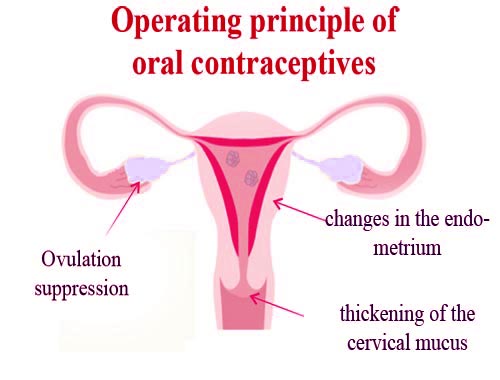Oral contraceptives usage

Published: 18 Jun 2025
ICD9: V25.01 ICD10: Z30.011 ICD11: PB28
"Oral contraceptives usage" refers to the use of birth control pills, also known as "the pill," to prevent pregnancy.
These pills contain synthetic hormones, typically estrogen and progestin or progestin alone, that work primarily by preventing ovulation (the release of an egg from the ovary). They can also thicken cervical mucus, making it harder for sperm to reach an egg, and thin the lining of the uterus, making it less likely for a fertilized egg to implant.
Here's a breakdown of what that entails:
![]() Method of Contraception: Oral contraceptives are a hormonal method of preventing pregnancy.
Method of Contraception: Oral contraceptives are a hormonal method of preventing pregnancy.
![]() Mechanism of Action: They primarily prevent ovulation, but also impact cervical mucus and the uterine lining.
Mechanism of Action: They primarily prevent ovulation, but also impact cervical mucus and the uterine lining.
![]() Administration: Taken orally, usually once a day, at the same time each day for optimal effectiveness.
Administration: Taken orally, usually once a day, at the same time each day for optimal effectiveness.
![]() Types of Pills: There are different formulations of oral contraceptives, including:
Types of Pills: There are different formulations of oral contraceptives, including:![]()

![]() Combination Pills: Contain both estrogen and progestin. These are the most common type.
Combination Pills: Contain both estrogen and progestin. These are the most common type.![]()

![]() Progestin-Only Pills (POPs or mini-pills): Contain only progestin. These are an alternative for women who cannot take estrogen.
Progestin-Only Pills (POPs or mini-pills): Contain only progestin. These are an alternative for women who cannot take estrogen.![]()

![]() Extended-Cycle Pills: Designed to reduce the frequency of menstruation.
Extended-Cycle Pills: Designed to reduce the frequency of menstruation.
![]() Effectiveness: Highly effective when taken consistently and correctly. Typical use (including missed pills) has a higher failure rate than perfect use.
Effectiveness: Highly effective when taken consistently and correctly. Typical use (including missed pills) has a higher failure rate than perfect use.
![]() Benefits beyond contraception: Oral contraceptives can have benefits beyond pregnancy prevention, such as:
Benefits beyond contraception: Oral contraceptives can have benefits beyond pregnancy prevention, such as:![]()

![]() Regulating menstrual cycles
Regulating menstrual cycles![]()

![]() Reducing menstrual cramps and heavy bleeding
Reducing menstrual cramps and heavy bleeding![]()

![]() Improving acne
Improving acne![]()

![]() Reducing the risk of ovarian cysts
Reducing the risk of ovarian cysts![]()

![]() Reducing the risk of endometrial and ovarian cancers
Reducing the risk of endometrial and ovarian cancers
![]() Potential side effects: Oral contraceptives can have potential side effects, which vary from person to person. Common side effects may include:
Potential side effects: Oral contraceptives can have potential side effects, which vary from person to person. Common side effects may include:![]()

![]() Nausea
Nausea![]()

![]() Headaches
Headaches![]()

![]() Breast tenderness
Breast tenderness![]()

![]() Mood changes
Mood changes![]()

![]() Weight changes
Weight changes![]()

![]() Spotting between periods
Spotting between periods
Serious side effects are rare but can include blood clots, stroke, and heart attack, especially in women who smoke or have certain underlying medical conditions.
![]() Prescription Requirement: In many countries, oral contraceptives require a prescription from a healthcare provider. This is to ensure that they are safe and appropriate for the individual, taking into account their medical history and potential risk factors.
Prescription Requirement: In many countries, oral contraceptives require a prescription from a healthcare provider. This is to ensure that they are safe and appropriate for the individual, taking into account their medical history and potential risk factors.
![]() Considerations: Choosing the right oral contraceptive involves considering individual health factors, lifestyle, and preferences. It's important to discuss options with a healthcare provider to determine the best choice.
Considerations: Choosing the right oral contraceptive involves considering individual health factors, lifestyle, and preferences. It's important to discuss options with a healthcare provider to determine the best choice.
In summary, "oral contraceptives usage" is the practice of using birth control pills to prevent pregnancy, involving a daily regimen of hormone-containing pills taken to inhibit ovulation and alter the uterine environment. It is important to discuss the risks, benefits and alternatives with a healthcare professional.